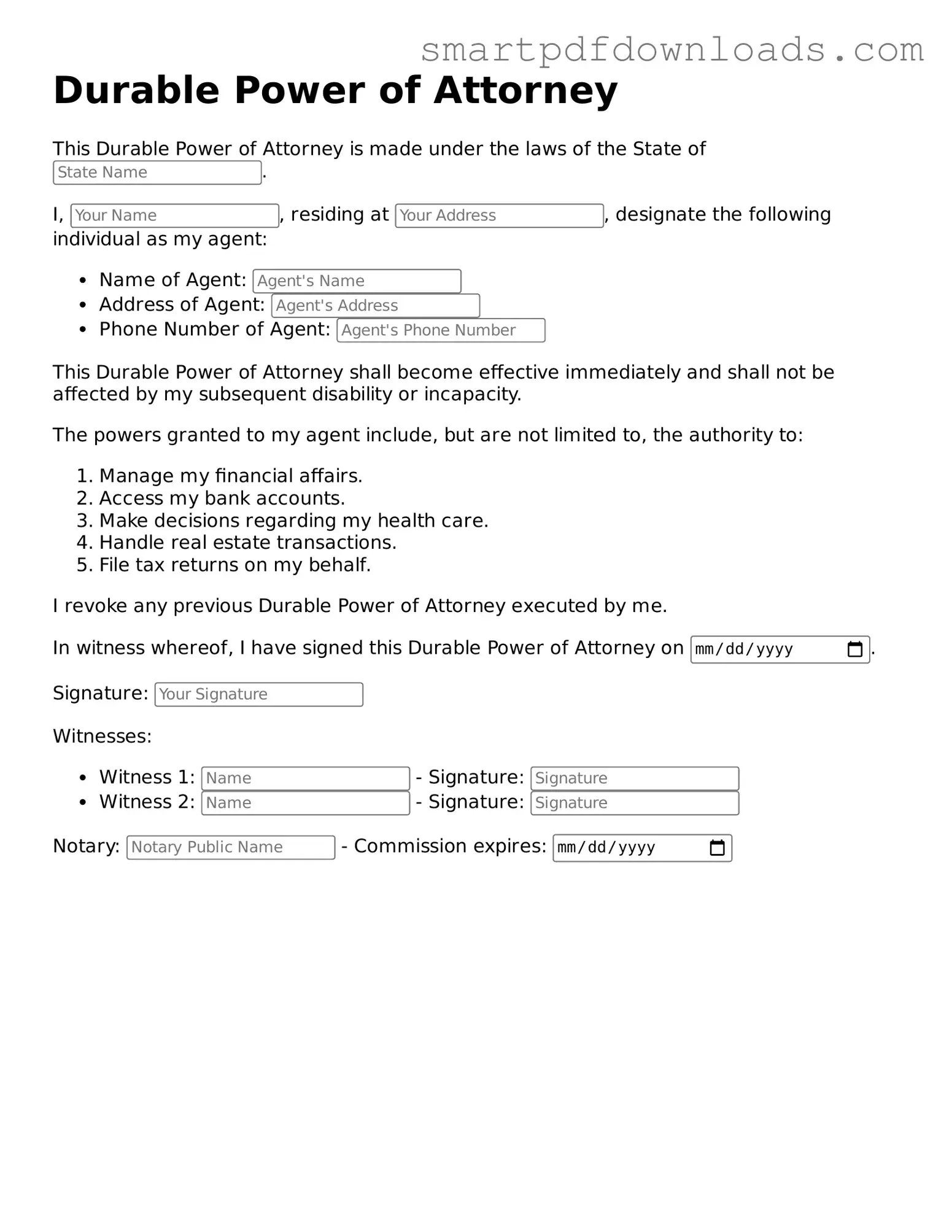Free Durable Power of Attorney Form
A Durable Power of Attorney is a legal document that allows an individual to appoint someone else to make decisions on their behalf, particularly in financial or medical matters, if they become incapacitated. This form remains effective even if the person who created it is no longer able to make decisions for themselves. Understanding its importance can help ensure that your wishes are respected and managed by a trusted individual during challenging times.
Edit Durable Power of Attorney Online

Free Durable Power of Attorney Form
Edit Durable Power of Attorney Online

Edit Durable Power of Attorney Online
or
⇓ PDF File
Finish the form and move on
Edit Durable Power of Attorney online fast, without printing.